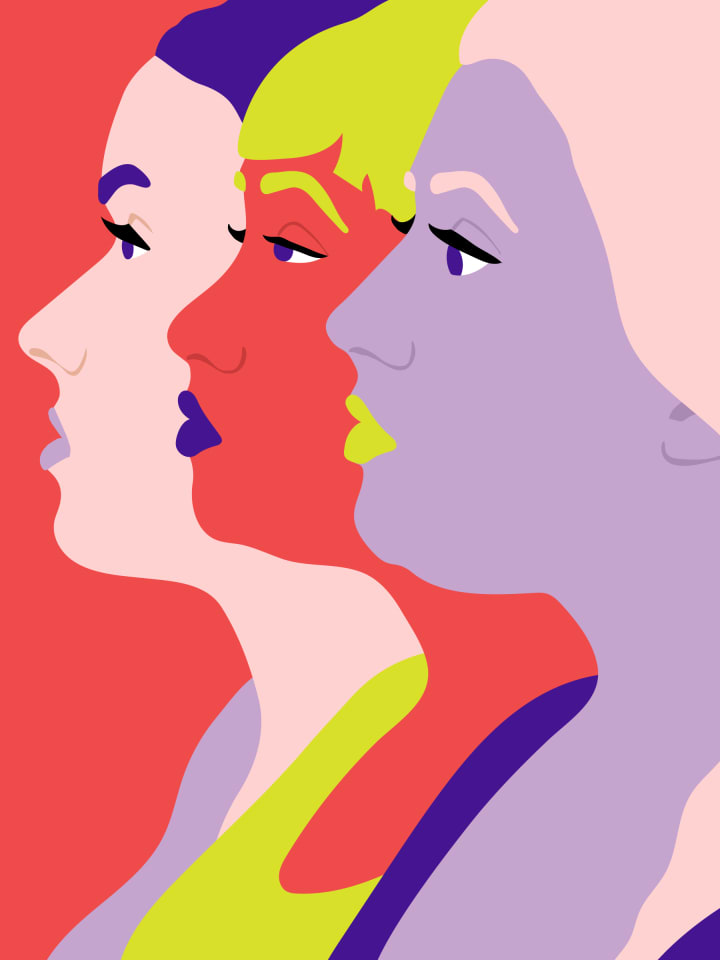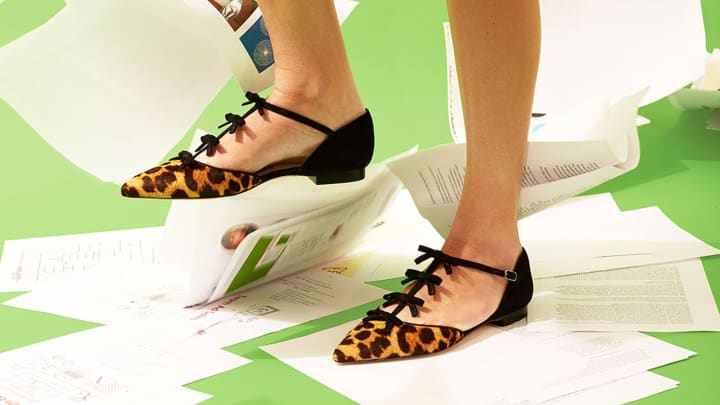Self-Help Things You’re Doing That Are No Help At All
Getting into cleanses and trying every new thing on the market isn't always good. For example, these self-help things you're doing are no help at all.

If there's one thing that the internet has made possible, it's the rapid proliferation of bad ideas. We've all seen what happens when bad ideas take hold and spread, and you'd think we'd learn from it, but clearly, many of us always end up falling for the same bad info.
The fallout of falling for bad ideas can cause many things to happen. With politics, this often makes us vote against our own interests. With medical issues, it can cause you to accidentally turn yourself blue or forgo life-saving medication in favor of a shill.
This trend came at a time when the self-help industry is also booming. Yoga rooms, healing crystals, healthy living apps, self-help gurus like Deepak Chopra, and guided meditation are all becoming incredibly popular. However, not all of these things are necessarily good—or even proven to do anything at all.
With self-help, though, it's often hard to pinpoint what's bunk and what's not. Make no mistake about it, there's a good chance that some of the self-help things you're doing aren't actually helping you at all. Here are the worst self-help trends out there, and why they're wrecking your life.
Trying to "out-Alpha" people will only drive people away from you.

So many self-help forums, particularly those in dating, tend to talk about how important it is to be an Alpha Male or an Alpha Female. Nothing about this self-help advice is useful. And more often than not, it's the reason why people end up getting angry, violent, and bitter towards the people they're trying to attract.
Many of the self-help things you're doing that align with this kind of mentality are probably making you a lot angrier than you should be. It's not a good look.Worse, the whole "Alpha Male" mentality that's pushed by dating groups tends to be incredibly toxic—and often lays the groundwork that makes people become abusive towards partners. Don't do this to yourself. There are better self-help guides out there.
Staying optimistic and wishing for the best, without being realistic will probably get you hurt.
I really, truly despite The Secret and all that other garbage about the Law of Attraction. So many of the self-help things you're doing probably involve cultivating a very happy, sunny view of life.
That in and of itself is okay—but only if the outlook you're giving is one that's realistic. If it's an unrealistically happy expectation, where you're either doing nothing or worse, enabling others to harm you, that practice is not doing anything for you. In fact, it's hurting you.
Additionally, it's crucial to remember that you should always hope for the best, but keep a plan for the worst. Putting your entire life on the line for a "maybe" is never a good idea, and if you don't prep a safety net, it's a quick way to be put at the mercy of others.
Trying extreme dieting, long-time exposure in heat lodges, or wild retreats without food or water can and will kill you.
With the self-help industry being as booming as it is now, it's not surprising that a lot of charlatans are passing off medically unsound "treatments" as transformational self-help retreats. Hopefully, these are not self-help things you're doing. If they are, please stop immediately.
Scientific Americanpointed out that the now $12 billion-dollar industry has had dozens of deaths associated with fake gurus who insisted participants go without food and water—or otherwise harm themselves in order to "get better."
Just because others try to press their self-help on you doesn't mean it's a good idea to try. Use common sense and research what others are saying before you give it a shot.
Follow your passion, and you might end up following the unemployment line.

Ugh, if I had a nickel for every time I've heard this, I'd be a millionaire. And, it's probably one of the self-help things you're doing that may be guiding you down the wrong path. Steve Jobs didn't follow his passion when he made Apple; he followed what he did well.
You can be the most passionate human being on the planet about a subject, but if you suck at it, you're not going to get a good job in it. A person with health issues will not become an astronaut; but, if they are great at science, they can help develop the rocket that sends folks to Mars.
"Follow your passion" is useless advice without following up with the advice to make your passion the thing you're best at.
Sometimes, letting loose with your emotions can end up causing toxic cycles.
One of the most common self-help practices people hear is to "let feelings loose" for a bit. Initially, it can help them feel better. However, this also could be one of those self-help things you're doing that's actually messing with you.
Believe it or not, many studies suggest that a large percentage of people tend to fare best when they keep most of their emotions bottled up. Asking them to write things down or "scream it out" can actually make it harder for them to overcome things.
Also, it's worth pointing out that letting loose with your emotions in an uninhibited way, even in private, can make it harder to keep things bottled up when you need to put a lid on it.
This is particularly true with rage, and for some people, it can turn into a rage addiction. Since acting out in anger tends to make our brains feel rewarded...well, you can see where the issue arises, right?
Listening to your heart is a bad way to go through life.
Speaking as a relationship advice columnist, I can honestly say that listening to your heart is one of the worst self-help things you're doing right now. You know why? Well, there's a number of reasons why this is such a bad idea...
- Love alone is not enough to have a happy relationship. Sorry to burst the bubble, but Disney lied to you about true love. You can't eat love. You can't negotiate certain things that you want, such as kids or lifestyle. You also can't "love" someone into good health or a healthy mindset. If you're both not healthy and don't have a stable income, chances are high that you won't be happy together, regardless of love.
- Your heart lies. There, I said it. It's true. The "heart" tends to be the driving force that keeps people in abusive relationships, hoping it'll change. Your "heart" is addicted to feel-good chemicals sparked by love (or validation) and feels a withdrawal at their absence. This makes you crave another hit, which means you want to stay longer, hoping they'll change. Sometimes, even if you like the person, you have to take an objective look and realize they're not good for you.
- At times, we don't really know what we want—even if we think we do. If you were to have asked me four years ago, who I'd want to marry, it'd be my ex. He's an ex for a reason. Just saying.
Stop "listening to your heart" and start thinking with your brain. This is one of the most toxic self-help things you're doing, and it needs to stop, yesterday. You'll be way better off, I promise.
"Trusting the Universe" is rarely ever a wise choice, unless you're also working towards goals.

This is another one of those self-help things you're doing that you've probably seen all over Instagram: trusting "the Universe" to send you messages. At first glance, this sounds like an uplifting, spiritual way to be guided in the right direction.
The thing is, the universe is neither positive nor negative. It's a giant expanse filled with entropy, also known as chaos. The universe doesn't have a brain; it doesn't care if you really want a Maison Margiela jacket or a Lamborghini. So, don't trust it to come up with a way to afford those things.
However, not all is lost here. Trusting the universe is a good way to decrease anxiety and increase realistic optimism if you're actively working towards the goals you want to achieve.
"Radical Self-Love" is not always a good thing.
This might be one of those self-help practices you're doing that's wrecking a lot of things in your life. More specifically, your attitude.
People are flawed, and it's okay to embrace your flaws and others' flaws...to a point. There's a certain point where love and acceptance become detrimental to your safety, wellness, and the happiness of those around you.
Simply put, there are certain things that should not be acceptable in your eyes. For example, if you have a habit of physically abusing your partners, you shouldn't feel good about that. You shouldn't embrace that; you need to have reason to change.
Similarly, accepting things that are seriously harmful to your situation or wellbeing is not a good thing. If you find yourself writing off traits as "just the way you are," you need to reassess things.
When the idea of Radical Self-Love came out, it was about embracing healthy quirks or realizing that the past is done with. Now, it's kind of devolved into a "forgive everything" trope that does little to make you want to better yourself.
Few self-help practices you're doing might be as warped as this one. So, you might want to re-evaluate what you believe is radical self-love, or radical acceptance.
Spending too much time around people as a distraction can end up turning into a bad problem.

A lot of self-help practices you're doing might be about surrounding yourself with people when you're feeling low—or worse, isolating yourself for months on end when you're depressed. Neither tends to be a healthy solution, either.
Being overly social tends to turn into a form of escapism, with many practicers running away from their thoughts by continually being around people. Being cloystered up, on the other hand, can lead to getting immersed in cycles of negative thinking.
That's why one of the best self-care practices to try is to balance out your free time evenly.
Trusting the experts about the self-help practices you're doing.
Here's the thing that you should understand about the self-help practices you're doing: you should keep it up as long as it legitimately helps you. However, too often, we end up just buying into the latest self-help gurus and trends, thinking that they'll have all the answers we need.
The fact of the matter is that no one has all the answers, and self-help really isn't one size fits all. Everyone's journey to healthy is different. What works for someone's mental health might not work for others.
Anyone who tells you otherwise is probably not really looking out for your best interest, and is probably trying to sell you on something.
If something doesn't feel right, then don't do it. Listen to yourself before you listen to the pressures of others, and you'll avoid a lot of the most dangerous "self-care" out there.
About the Creator
Mackenzie Z. Kennedy
Socialite and dating guru Mackenzie Kennedy knows all about the inner workings of people and society as a whole. It's not only her lifestyle - it's her passion. She lives in Hoboken with her pet dogs, Cassie and Callie.






Comments
There are no comments for this story
Be the first to respond and start the conversation.